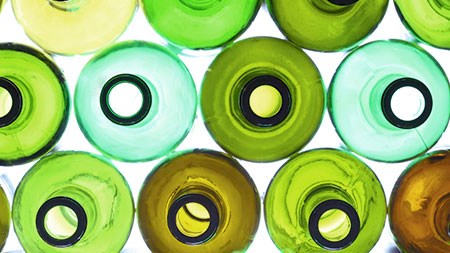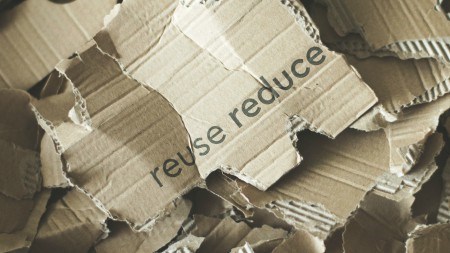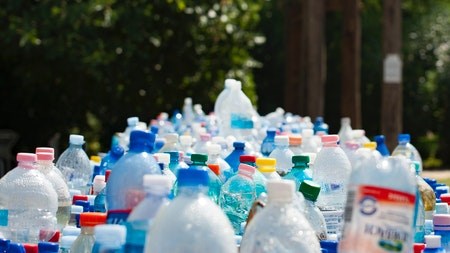With over-consumption and pollution ravaging our planet, it’s up to every one of us to do what we can to make a difference. Recycling is a good start.
The effects of over-consumption and mass pollution are increasingly making themselves known. Within this context, recycling is playing an increasingly important role. While effective and convenient mass recycling programmes have yet to be implemented in South Africa, it is possible to practice good recycling habits, albeit with a little more effort than more developed economies.
Homes are arguably some of the biggest contributors to South Africa’s landfills due to the fact that there is little in the way of formal residential recycling initiatives. What’s more is that education surrounding the issue is lacking and many perceive recycling to be a hassle. Like anything, it’s just a matter of getting into the habit.
Scary statistics:
The following are some of the estimated decomposition rates of various items:
- Plastic bottle: 400 years
- Disposable diapers: 450 years
- Fishing line: 600 years
- Glass bottle: 1 million years
- Aluminium can: 80-200 years
- Tin can: 50 years
- Paper: 2-5 months
- Batteries: 100 years
Getting started:
If you’re interested in recycling (and you should be taking the above into consideration) you need to do some homework. In South Africa, there are three ways to go about recycling. You can organise a curb-side collection service for a nominal fee; you can take your recyclable items to a municipal drop-off point or buy-back centre or you can allow informal recyclers to sift through your garbage every week and take your recyclables to a buy-back point.
Whatever you choose to do, you need to know what can and cannot be recycled. Items which fall under the recyclable banner include aluminium cans, food tins, foil, paint and aerosol cans, glass bottles, scrap metal, polystyrene, just about all types of paper and plastic (there are several types of plastic which need to be recycled accordingly). Just about all food scraps can be recycled via various composting methods too.
Of course there are also items which cannot be recycled via ‘traditional’ means and those that cannot be recycled at all.
According to the Recycling Association of South Africa (RASA), items which cannot be recycled via ‘traditional’ means include light bulbs, batteries, fruit juice and milk containers. Light bulbs and batteries can be disposed of at special drop-off points at Woolworths and Pick ‘n Pay and via specialised recyclers including eWASA and Uniross. Fruit juice and milk containers can be recycled at Tetrapak’s specialised facilities. Laminated or waxy paper, drinking glasses, punch confetti, carbon paper, pyrex, ceramics and stickers cannot be recycled.
If the thought of recycling everything is daunting to begin with, decide what you would like to start recycling first and go from there. As a rule of thumb, rinse the items you wish to recycle. Next, set them aside in an appropriate bag or container. Once you have gathered enough recyclables, you can either deposit it outside for your curb-side service to collect, take it your local drop off point or put it to one side for the informal recyclers to pick up which also minimises the health risks to them.
And what of used lubricating oil? Lubricating oil can also be recycled. All lubricants reach a point where they can no longer perform, at which point the oil must be drained. While it may be tempting to simply pour this used oil down a storm water drain or similar, such oil causes extensive soil and water pollution and can be harmful to people.
Workshops, motorists, factories and mines which routinely use lubricants can follow the following easy steps to ensure that used oil doesn’t contaminate the environment:
1: Large-scale users can deposit their used oil in mini tanks which are available from the ROSE Foundation (Recycling Oil Saves the Environment) http://www.rosefoundation.org.za/
2: Motorists can deposit their used oil in a sump which can be bought at hardware or spares shops
3: Call NORA-SA to pick up your used oil http://www.norasa.co.za/
4: NORA-SA collectors will deliver the used oil to bulking depots where it will be stored until it is sold to approved recyclers/processors which then process the oil into low grade industrial heating fuel or for use in firing up cement kilns
Curb-side collection services available in SA:
- The Waste Group http://www.wastegroup.co.za/recycling-reuse-and-reclamation/doortodoor/
- Mama She’s Waste Recyclers http://www.wasterecyclers.co.za/
- Whole Earth http://wholeearth.co.za/
- Abundance Recycling http://www.abundancerecycling.co.za/
- Atlantic Plastic Recycling http://www.atlanticplasticrecycling.co.za/
- Kool Waste Management http://www.urbansprout.co.za/koolwastemanagement
Other useful recycling contacts:
- EWASA http://www.ewasa.org/
- Uniross http://www.uniross.co.za/
- Collect-A-Can http://www.collectacan.co.za/
- Tetra Pak http://www.tetrapak.com/za
- Pikitup garden centres (located around South Africa). These centres accept various recyclable items http://www.pikitup.co.za/
- The Glass Recycling Company http://www.theglassrecyclingcompany.co.za/
- Mondi: Mondi offers a national collection service http://www.mpactrecycling.co.za/
- The Polystyrene Packaging Council http://www.polystyrenerecyclingnetwork.com/




